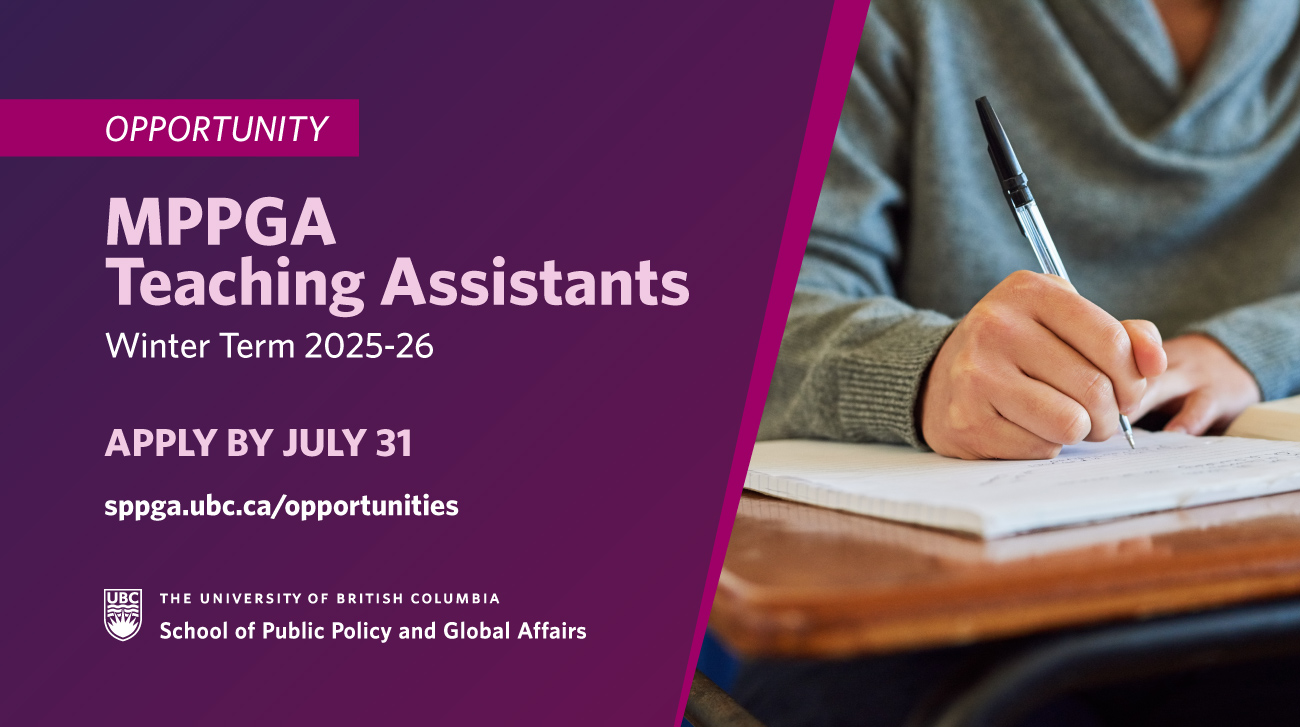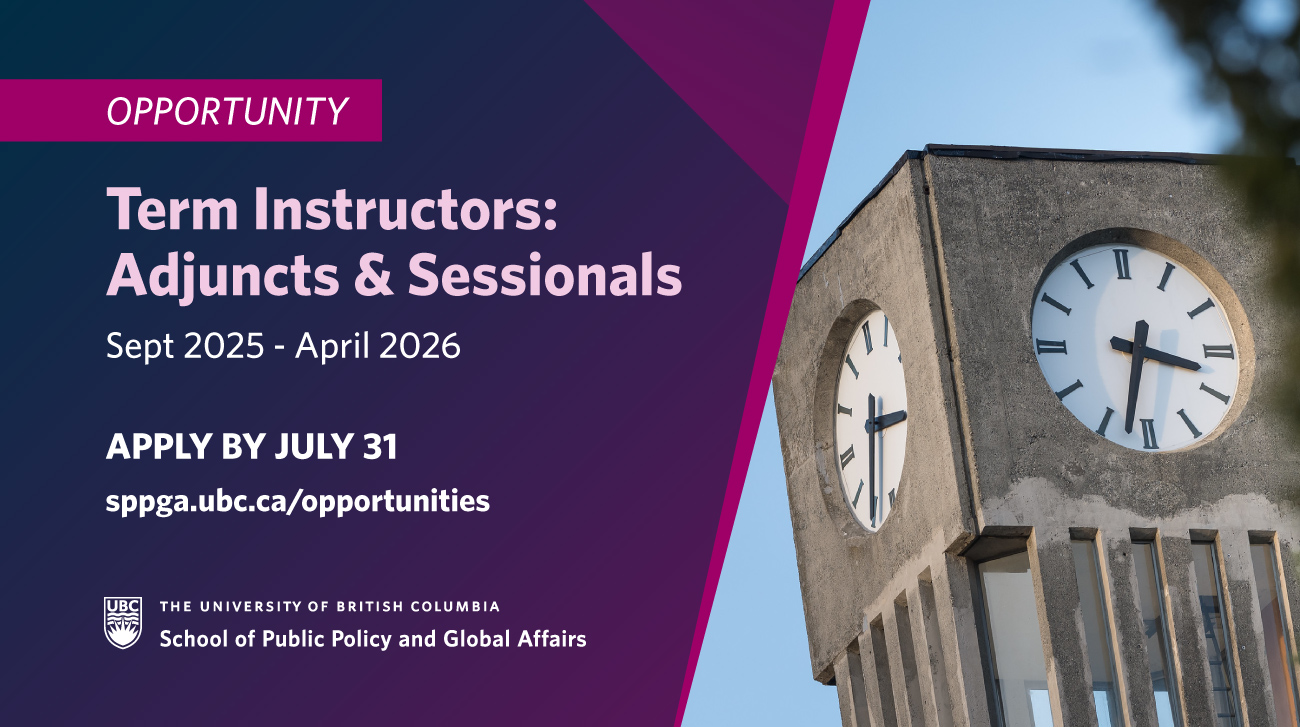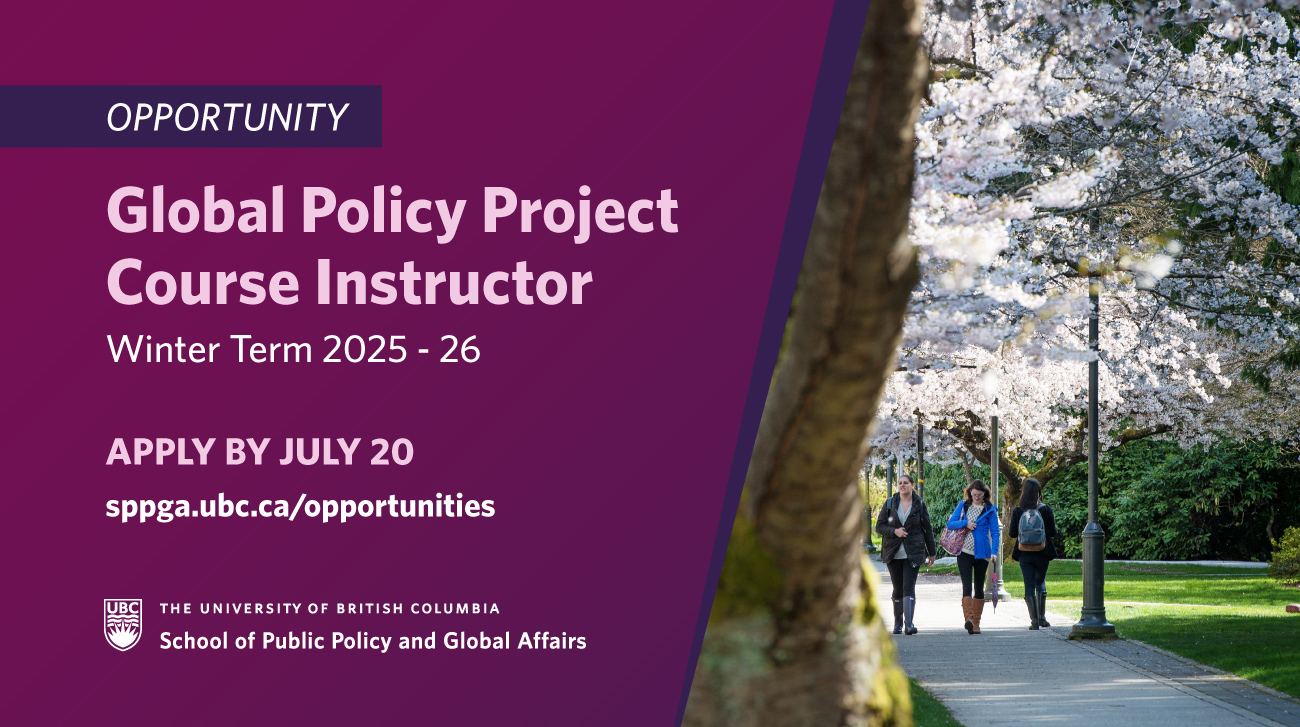During our Spotlight on MPPGA Alumni Careers series, meet the UBC Master of Public Policy and Global Affairs (MPPGA) alumni who are committed to addressing the pressing and complex public policy challenges facing the world.
Today, we are featuring Bo Wang (’18) who is employed as an Associate, China for Principles for Responsible Investment (PRI) in Beijing, China. During his time in MPPGA program, Bo pursued the Resources, Energy and Sustainability stream.


What were your primary interests while studying in the MPPGA program?
I came to the MPPGA program with a background in economics and finance, and a career interest in sustainable finance. After building a foundational understanding of key public policy concepts with the core MPPGA curriculum, I really appreciated the selection and relevance of MPPGA electives in the subjects of sustainability, energy transition and climate change. It was particularly helpful to both learn from influential professors in the field and exchange ideas with colleagues from various backgrounds in many of those electives.
Which opportunities did you participate in during the MPPGA program that contributed to your career journey?
For my Co-op term, I had the great opportunity to work with Dr. Nadja Kunz (SPPGA; Norman B Keevil Institute of Mining Engineering) and her team at the Liu Institute for Global Issues here at UBC’s SPPGA, and later at the Canadian International Resource and Development Institute. Our analyses and projects looked at top mining companies’ contributions to SDG 6: Clean water and sanitation, which also informed my later research on impact metrics for green bonds at the Center for Sustainable Finance and Private Wealth at University of Zurich, funded by the ThinkSwiss Scholarship.
I was also fortunate enough to be selected for the UN Association in Canada (UNAC) internship in the Environment and Climate Change team at UNDP Viet Nam, where I gained first-hand experience working on climate-related development projects. For example, building on previous knowledge on impact metrics, I helped designed the database and assessment tool to facilitate investment in local climate-friendly businesses. My background and learnings from MPPGA electives also come in handy when I explored climate insurance schemes appropriate under the ongoing Green Climate Fund project.
These very relevant experiences and a wide range of skills developed during my study launched me into a career in sustainable finance.
What is your current position and main responsibilities?
I joined the UN-supported Principles for Responsible Investment (PRI) in June 2019. The PRI supports investors, especially asset owners and their managers to incorporate environmental, social and corporate governance (ESG) factors into investment decisions and stewardship practices, which is broadly covered by its six principles for responsible investing.
As China Associate, I’m responsible for recruiting local investors to sign, supporting them in implementing those principles, and briefing them of latest guidance and initiatives. Back in April, I wrote an introductory piece on asset owners’ role on climate change, which provides an overview of key streams of our work.
What makes you proud about your current job? How does it relate to your MPPGA degree?
Our world’s development agenda cannot be achieved with the public sector and development money alone. Huge investment gaps need to be filled with private sector investments. More importantly, the biggest influence could be realized if private investments driven by financial performance adopted ESG investment to mitigate risks and changed corporate behaviors for value creation. At the very least, investments with negative environmental and social impact should be discouraged systemically. I’m deeply proud of PRI’s purpose because it aims to influence the mainstream investment industry and remove systemic barriers by engaging with policymakers as well.
My MPPGA degree offers me not only essential foundations for understanding policy processes and drivers, but skills to navigate complex sustainability and development issues. I also had chances to expose myself in timely academic research and international development projects. Just as our views on corporate purposes evolve, so will those about the role of the investment industry in shaping real world outcomes beyond delivering returns, especially for large asset owners such as our pension funds and sovereign wealth funds.
I believe the knowledge, skills, and experiences I gained are incredibly beneficial in drawing lessons from development finance to mainstream investing and guiding my future career development.
Thank you Bo!


